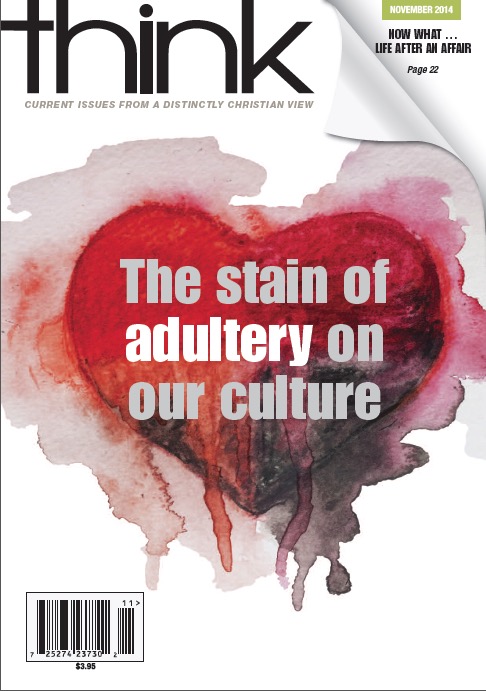Have I been too harsh on the sinful people of this world?
To be honest, it seems to be a valid concern. I’ve certainly been one to think my duty is done merely by telling someone they’re in sin – especially sin that might be foreign to us, like homosexuality, abortion, transgenderism, and the like. We can be very good at telling the world they are wrong, but I (and others might say the same) am not as good at showing them that I love them and care about them. We can all be vulnerable to that type of legalistic Pharisaism if we aren’t careful, because it’s very easy to sit in ivory towers and talk about how wrong other people’s sins are. But as followers of Jesus, we can’t be cold, distant communicators.
Instead, it must be our goal to display the image of Jesus in letting people know they are loved and cared about despite their sins. Where the Pharisees were eager to stone the adulterous woman in John 8, Jesus was quick to see her as a human, no more flawed than anyone else.
I think we should ask ourselves – if a homosexual couple or a transgender person came into your assembly this week, would they walk out knowing that your congregation was glad to have them in attendance, that God loves them and that we love them too?
On the other hand, though, it’s important that we recognize our tendency as humans to fall prey to the pendulum effect. When bad ideas or doctrines are popularized, we are quick to run as far as we can in the opposite direction – typically too far. After years of that type of Pharisaism and preaching that was all hellfire and brimstone, all obedience, no grace or love in certain corners, it’s unsurprising that there has been a swing too far in the other direction.
Now sin, obedience, and punishment are avoided and sin and atonement are even being downplayed or even struck from the story of the cross by those who are pushing back against the cold-hearted preaching some have espoused. This antinomianism (the denial of law or commandments) is a common overreaction to legalism. Those on this side of the fence should put themselves in the same scenario – what if a homosexual couple or a transgender person walked into your assembly this week? Should they feel welcome enough to come back, will they ever be confronted and called to repentance?
We have to remember that God’s love for the sinner cannot be separated from His wrath toward sin. Despite sin’s popularity with the world and with many Christians today, our God still really, really, really hates sin. The God we serve is the same God who struck down Nadab and Abihu in the Old Testament (Leviticus 10) and Ananias and Sapphira in the New Testament (Acts 5). He’s the same God who wiped Sodom and Gomorrah off the map (Genesis 19) and threatened to do the same to Nineveh (Jonah). He’s the same God who opened up the ground to swallow up rebellious Israelites (Numbers 16). He’s the same God who hated sin so much that He sent His only Son to be beaten and crucified to defeat sin and death (John 3:16).
But that truth isn’t very popular in the world. Many view God as unloving for the demands He makes, and in trying to reach others and shy away from those who only preach on God’s wrath, we can easily try to paint ourselves as more loving and less judgmental than God.
What we forget in that moment is that God could not be loving without judgment. It breaks His heart when we are in sin because sin separates us from Him, and He knows that only He can make us what we should be. So, to try to love someone without ever calling them out of their sin is not loving at all. God loves everyone and wishes all would come to repentance (2 Peter 3:9), but He cannot give Himself to a person unless repentance happens.
So, how would God have us address the sins of the lost? Do we focus on correcting their sins? Or do we focus on reaching out to them as a friendly face?
It’s not choosing one side or the other. Love requires both sides. We care for the person, reach out to them, and build a relationship with them because we love them and because God loves them. And, we work toward showing them where they are separated from God because we love them. Legalism forgets to care for the person, which is wrong. Antinomianism forgets that a person cannot find rest in God while sin still reigns in their life. Our challenge is to strike that balance that sees others as God sees them, loving them no matter where they are in life, helping them see their error, and showing them hope and restoration through Jesus.

Jack Wilkie is the editor of focuspress.org and author of “Church Reset: God’s Design for So Much More.” He also preaches for the Forney church of Christ in Forney, TX, where he, his wife, Allison, reside with their four children. You can find his full bio here.








